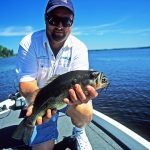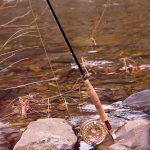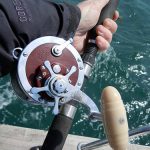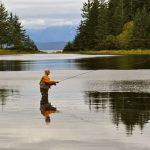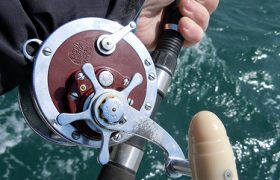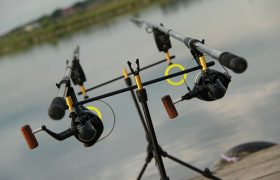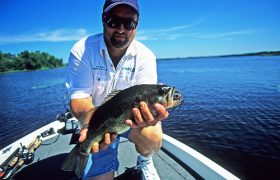Bass fishing is a great place to start for the novice fisherman. The reason for this is that bass are easy to catch and reel in easily. Once you master bass fishing, you might want to keep doing it, as some bass will put up a huge fight that will be the highlight of your day.
Grubs are a great bait for catching bass. These lures, although small in size, will help you in your efforts to catch big fish. They are useful in catching small and largemouth bass. They work best in highland reservoir areas where coverage is limited.
While learning to fish, get in the habit of observing your surroundings. You may start to notice correlations between environmental elements, and the luck you have with catching fish. For instance, if you hear frogs, there may be bass nearby. Look for clues in the weather patterns, sights, and sounds around you.
Choose the right time of day and the right temperature for fishing. For example, bass are most active when the sun rises or sets as their food is active at those times. Just make sure the water is over 50 degrees when you’re fishing.
If you’re hoping to catch bass, look for the coolest water in your area. Rocks and humps are the ideal place to find cool patches. Bass naturally gravitate towards cool parts of the water, and you’ll have much better luck catching them if you do the same. You may want to carry a water thermometer with you as you go.
You can usually tell where bass are going to be based on the weather conditions. When it is sunny, bass usually like to find color. When it is cloudy outside, bass scatter. So, when the sun is bright, fish will usually bite a lure that is close to cover. If it’s cloudy, bass can bite just about anywhere.
Fishing nears structures like fallen trees, banks, or something of the sort can help you find certain fish you may be seeking. Fish prefer the protection afforded by these areas over the dangers of the open water. An empty, quite shore can be a great place to catch large fish.
If you are targeting small-mouth bass, fish near rocky structures. These areas are where small-mouth bass tend to favor. In addition to rocky areas, they also prefer warm, shallow waters.
Night-time fishing for species like small-mouthed bass can be very productive. If you were successful at catching fish in a shallow area during daylight, then stick to that same general area at night. Bass are known to stay put and not roam too far from home. Just push out a bit into water that is a little deeper, and look for areas with weed beds or rock piles where the fish might settle in for the night.
Now that you’ve read this article, you should be prepared to take that first fishing trip. Use the advice that you’ve gleaned from this article to make it a successful trip. With a bit of practice, you’ll soon be able to brag about the huge fish you caught, instead of lamenting about the one that got away.
Photo by Wisconsin Department of Natural Resources 

